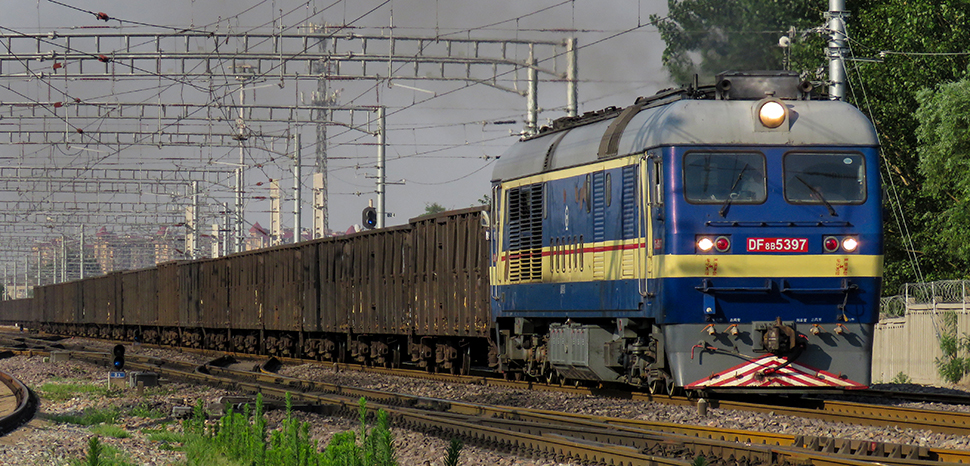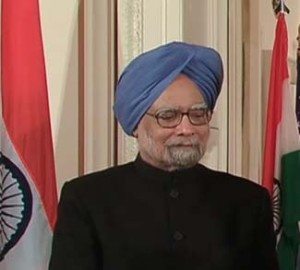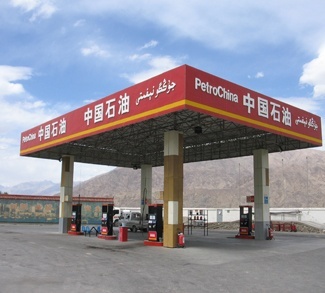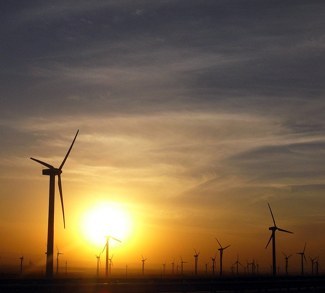Transportation corridors across Eurasia are not new. China announced the construction of the Belt and Road Initiative in 2013, and the project has been described as the New Silk Road. Moreover, when the war in Ukraine commenced, the Trans Caspian International Route, or Middle Corridor, quickly gained prominence to decrease reliance on Russian territory to transport goods and commodities from East to West or West to East. Another new initiative undergoing discussion and planning is the Southern Transport Corridor (STC). However, the Corridor one has a weak link: Kyrgyzstan.
The idea of the Southern Corridor is to transport goods from East to West and West to East, from Kyrgyzstan to Uzbekistan to Turkmenistan (this initiative is different from the International North-South Corridor). From there, it is unclear how goods would arrive in Europe. Some media reports explain that they would cross the Caspian Sea to Russia’s Astrakhan port, and others mention that goods would go south from Turkmenistan, passing through Iran to Turkey and then Europe. If the Corridor becomes a reality, we can assume that it will eventually attempt to link to China, as Kyrgyzstan borders said country.
Of the three Central Asian states constituting this potential initiative, Kyrgyzstan is arguably the weakest link. This statement is quite an accomplishment as Turkmenistan is a well-known dictatorship (with power shared between father and son), while Uzbekistan’s President Shavkat Mirziyoev was re-elected in 2023 in a “scripted election.” What makes Kyrgyzstan stand out, for all the wrong reasons, is a mix of decreasing good governance and transparency, along with growing dependence on China.
A string of scandals has hit Kyrgyzstan over the past year. Thus, it is unsurprising that Transparency International’s 2023 Corruption Perception Index ranked Kyrgyzstan in the 141st spot, between Guinea and the Russian Federation. It is not an ideal location. Transparency has lamented Kyrgyzstan’s quick fall from grace, as the Central Asian country “turned from a bastion of democracy with a vibrant civil society to a consolidated authoritarian regime that uses its justice system to target critics.”
The government arrested the president’s nephew, Ulan Japarov, in 2023, an act “seemingly intended to persuade the public of the sincerity of the government’s fight against graft.” This attempt at exporting an image of greater transparency and accountability was short-lived. In January, Bishkek arrested 11 journalists specializing in corruption and extended their pre-trial detention in March. The Clooney Foundation for Justice posted on X this past May 3 how “press freedom is on the decline in many countries around the world and #Kyrgyzstan is no exception. In just one year, Kyrgyzstan plummeted 50 spots” in a report by Reporters Without Borders.
If the Southern Corridor moves forward, who benefits from mandatory (and costly) infrastructure projects will be a critical issue to monitor. As the author of this analysis recently discussed in a co-authored report for The Diplomat on Sino-Kyrgyz relations, China’s Export-Import Bank owns approximately USD 1.7 billion of Kyrgyzstan’s $6.2 billion worth of debt. Over the past decade, Bishkek has supported Chinese investment in Belt and Road-related projects to reach new markets and develop new job opportunities for its citizens. (This reliance on China prompted anti-Chinese protests in 2019 and 2020).
Connectivity between the two states will likely grow in the near future, as this past January, the Chinese news agency China.org.cn reported that a third checkpoint between China and Kyrgyzstan, the Bedel Pass, “will be opened later this year.” The pass is located near Wushi County and Aksu County in Xinjiang, some 80 km from Karakol in Kyrgyzstan. If the Southern Corridor becomes operational, we can assume that the new pass will help Chinese companies connect with it.
Similarly, linking with Uzbekistan will require more investment in transportation infrastructure, which Bishkek cannot afford. While there are several options for potential partners (in October 2023, Germany’s Rhenus Group and Uzbekistan Railway signed an agreement to operate and expand railway terminals in Andijan and Samarkand), China will likely remain Kyrgyzstan’s priority investor.
Looking to the future, if Corridor-related projects commence in Kyrgyzstan, it will be challenging to know about them. Governmental transparency has declined, and “one-third of all budget expenditure will now be hidden away from the public’s eye because the new public procurement law no longer requires state companies to hold tenders or publish data on purchases,” wrote Open-Contracting Partnership back in 2022 about a controversial law by Bishkek. The new law and the recent arrest of almost a dozen journalists further demonstrate that the Japarov administration does not aim to open up to the world; instead, the government seeks to return to an opaque government style. Moreover, the combination of decreasing government transparency, combined with Beijing’s well-known active financial, trade, and investment presence across Kyrgyzstan, suggests that, if Corridor-related projects occur, the Kyrgyz population will not know much about them, and Chinese companies will likely be the major winners.
To regain the population’s trust and avoid another round of regime-shattering protests like in 2020, Bishkek must reaffirm its commitment to apply anti-corruption legislation and commit to returning to democratic and good governance principles (including an independent judicial system and supporting transparency and accountability). A change for the better will not occur soon, and the general population will remain restless. Kyrgyz merchants protested over new tax regimes in late November and December, highlighting that the population remains defiant to governmental abuse and lack of good governance.
Unfortunately, since achieving independence from the Soviet Union, Kyrgyzstan has not managed to develop its economy and industries; the country’s main exports continue to be a handful of goods, particularly oil, metal ores, and agricultural products. Hence, it makes sense that Bishkek aims to capitalize on its location to become a Central Asian transportation hub and corridor for Chinese commodities moving West (or South) to obtain new income.
The problem is that China will be a vital partner of Bishkek for the STC transportation project, which makes the latter more dependent on the former. Similarly, Beijing, Bishkek, and Tashkent have plans for a railway project to become “a crucial component of Xi Jinping’s ambitious Belt and Road Initiative.” The three governments signed an agreement during a September 2022 summit of the Shanghai Cooperation Organization to (finally) move the project forward. However, according to some media reports, Beijing does not see this railway system as a priority, and Bishkek cannot build its portion of the system on its own without international support.
It is unlikely that Bishkek can break away from its dependency on Beijing and improve its international image and reputation to attract new investors and partners for projects like the Southern Corridor.
The UK Secretary of State for Foreign, Commonwealth and Development Affairs, David Cameron, made a historical visit to Bishkek in late April; he announced the establishment of a USD 19.5 million investment fund to assist Kyrgyzstan, in addition to promises to increase British aid in education, business support and investment. Bilateral trade between London and Bishkek reached £71 million (USD 89.2 million) by the end of Q3 of 2023, not including investment. Hence, there is plenty of space for growth, but Bishkek must improve its democratic and good governance first. Kyrgyzstan is also receiving assistance from the European Union (EU) via the EU’s Global Gateway Forum. However, interactions between Bishkek and Brussels remain limited, particularly when compared to initiatives that link other Central Asian countries with Europe.
As for Washington, last August, Senator Bob Menendez (D-New Jersey) sent a letter to President Sadyr Japarov to express his “deep concern regarding allegations” that Kyrgyzstan is assisting “ the Russian Federation, or its proxies, in evading international sanctions, imposed with respect to Russia’s unlawful invasion of Ukraine.” At the time of writing, the author of this analysis has not found recent announcements of extra-regional (including European) companies looking to invest in Kyrgyz infrastructure transportation projects, which is unsurprising given that interactions with the West remain limited, Cameron’s visit notwithstanding.
Attracting non-Chinese investors for infrastructure projects will take a lot of work. Since Bishkek’s financial reserves are insufficient for major transportation infrastructure projects, and securing non-Chinese investors is a challenge, the country’s options are limited. Bishkek could procure another loan to finance railway and highway modernization, but this solution would increase the country’s debt in the short and medium term; the Kyrgyz population would probably not want to see their country more indebted to China, too.
Even by Central Asian standards, Kyrgyzstan has a problematic location, with China as an imposing neighbor and the country geographically distant from the oceans or corridors that could help facilitate exports. Moreover, while Secretary Cameron’s recent visit to Bishkek is historical, investment and trade from Washington, London, and Brussels are insufficient to help Bishkek liberate itself from China’s economic and investment influence.
The STC is a new attempt by some Central Asian countries to capitalize on the ongoing trend of decreasing European reliance on Russia as a corridor for the flow of goods and commodities (particularly regarding energy). The Corridor is still in its infancy, and it is unclear if it will become operational. Ultimately, Bishkek’s debt and reliance on Beijing means that for Kyrgyzstan to become a strong and reliable component of the Corridor, Beijing will remain the country’s benefactor. The Southern Transport Corridor may push Kyrgyzstan further into China’s orbit.
Wilder Alejandro Sánchez is President of Second Floor Strategies, a consulting firm in Washington, D.C. He covers geopolitical, defense, and trade issues in the Western Hemisphere, Eastern Europe and Central Asia.
The views expressed in this article belong to the author(s) alone and do not necessarily reflect those of Geopoliticalmonitor.com.




